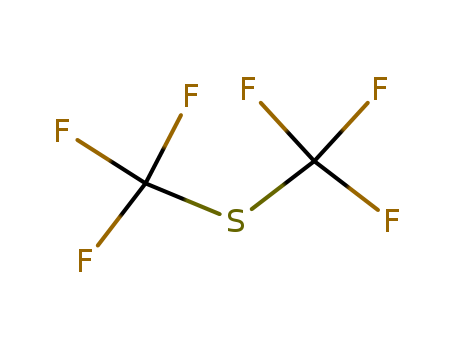10.1002/chem.201905771
The study presents the synthesis and characterization of the first organosilver(III) fluoride complex, [PPh4][(CF3)3AgF], which is a significant contribution to the field of fluorination processes. The researchers used trifluoromethyl groups (CF3) to stabilize the silver(III) center, and the complex was prepared through a series of reactions involving the chlorination of the organosilver(I) complex [CF3AgCF3]? to form [PPh4][(CF3)3AgCl], which was then treated with AgF to obtain the desired fluoro-complex [PPh4][(CF3)3AgF]. The purpose of these chemicals was to create a compound that could provide insights into silver-mediated fluorination processes, and to explore the reactivity and stability of the Ag–F bond within this complex. The study found that while the Ag–F bond was strong and withstood harsh conditions, it was also reactive, undergoing solvolysis with thiols to form thiolato complexes that could be converted into trifluoromethyl thioethers under mild conditions.
10.1002/anie.201208432
The study presents a novel method for the nucleophilic trifluoromethylthiolation of aryl halides using a series of air-stable copper reagents. These reagents, which contain a trifluoromethylthio group (-SCF3), are significant in the synthesis of compounds found in pharmaceuticals and agrochemicals due to their high lipophilicity and hydrophobicity. The researchers synthesized copper(I) trifluoromethylthiolate complexes using simple copper salts, elemental sulfur, a trifluoromethyl source (CF3SiMe3), and electron-donating ligands such as bipyridine derivatives. The purpose of these chemicals was to develop a cost-effective and easily storable reagent for the direct conversion of aryl halides into trifluoromethylthioethers, which are valuable in various chemical industries. The study demonstrates the efficiency of these copper reagents in producing aryl trifluoromethyl thioethers with a wide range of aryl and heteroaryl halides, offering a new and convenient approach to trifluoromethylthiolation.





